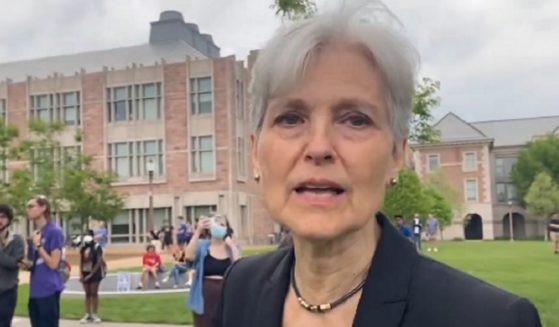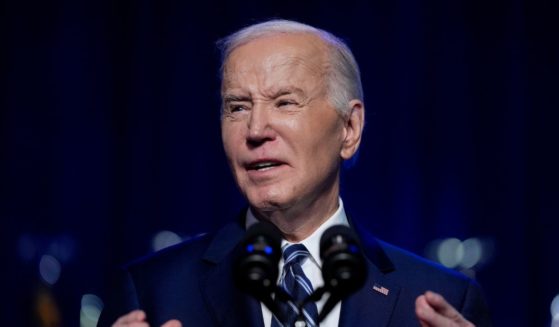Op-Ed: The Establishment Is Up in Arms About US Credit Downgrade, But Don't Let Them Fool You
On Tuesday, the debt evaluation firm Fitch Ratings downgraded the U.S. government’s credit from AAA to AA+. The Nasdaq fell 2.17 points yesterday. The S&P 500 was down 1.38 points. And the Dow fell a point.
Fitch explained its decision in a statement.
“We expect the general government (GG) deficit to rise to 6.3% of GDP in 2023, from 3.7% in 2022, reflecting cyclically weaker federal revenues, new spending initiatives and a higher interest burden,” the firm said. “Tighter credit conditions, weakening business investment, and a slowdown in consumption will push the U.S. economy into a mild recession” at the end of this year and beginning of next.
Fitch further explained, “The rating downgrade of the United States reflects the expected fiscal deterioration over the next three years, a high and growing general government debt burden, and the erosion of governance relative to ‘AA’ and ‘AAA’ rated peers over the last two decades that has manifested in repeated debt limit standoffs and last-minute resolutions.”
The two other hallmark ratings firms, S&P Global Ratings and Moody’s, have not changed their public evaluations of U.S. Treasury bonds. S&P had already downgraded the government to AA+ in 2011 and has kept it there. Moody’s continues to score the U.S. Treasury at AAA.
“I strongly disagree with Fitch Ratings’ decision,” Treasury Secretary Janet Yellen said in a news release.
“The change by Fitch Ratings announced today is arbitrary and based on outdated data. Fitch’s quantitative ratings model declined markedly between 2018 and 2020 — and yet Fitch is announcing its change now, despite the progress that we see in many of the indicators that Fitch relies on for its decision.”
Despite Yellen’s protest, Fitch’s decision was expressly and substantially based on more recent events and near-future expectations.
Media outlets paraded quotes from professional economists, i.e., the same class that has a demonstrable history of dismissing credible, data-driven economic forecasts, especially when said forecasts call into question their own stewardship.
The BBC, for example, quoted former Harvard president and Obama Treasury Secretary Larry Summers, who tweeted that Fitch’s decision was “bizarre and inept.”
Absent from the BBC’s coverage was the fact that Summers left Harvard in failure, facing a vote of no confidence. “Bizarre and inept” are exactly the words many would use for his performance as president.
The BBC also quoted Mohamed El-Erian as calling Fitch’s move “strange.” The outlet described El-Erian as “the chief economic adviser at financial services giant Allianz.”
But the BBC noticeably omitted that El-Erian chaired Obama’s Global Development Council from 2012 to 2017. Readers were thus left to figure out for themselves that El-Erian was implicated in the “erosion of governance relative to ‘AA’ and ‘AAA’ rated peers over the last two decades,” cited by Fitch in its decision.
The BBC further reported that “Nobel Prize-winning economist Paul Krugman said ‘the biggest economic news over the past year has been America’s remarkable success at getting inflation down without a recession.’”
Krugman endorsed Hillary Clinton in 2016.
Largely if not entirely missing from the BBC’s coverage were comments from nonpartisan or conservative economists, although — a long time ago in a galaxy far, far away — Alec Phillips of Goldman Sachs was a Senate staffer on the Finance Committee under Republican Chairman Bill Roth. (Phillips told the outlet, “The downgrade mainly reflects governance and medium-term fiscal challenges, but does not reflect new fiscal information.”)
That this group takes umbrage at Fitch’s candid evaluation of government spending is unsurprising, given their past policies of deficit spending and heavy-handed central economic management and regulation.
Overall, the narrative from the left’s partisan economists amounts to a thinly veiled attack on Fitch as a ratings firm. It is not unprecedented.
Two weeks after S&P downgraded the government’s credit rating in 2011, the Obama Securities and Exchange Commission and Justice Department announced they were probing S&P.
Two years later, they filed a $5 billion suit, which S&P blasted as “impermissibly selective, punitive and meritless.” The Obama administration brought the suit “in retaliation for defendants’ exercise of their free speech rights with respect to the creditworthiness of the United States of America,” S&P told the court.
The Obama administration refused to provide White House records relevant to the suit’s genesis, which may have spoken to its motives in filing it.
Of course, the media and Washington do not wish to discuss reducing government spending and regulation to address the core economic problems that caused the downgrade, e.g., America’s expanding $76.4 billion trade deficit.
But the markets are not fooled. And neither should you be.
I am an Obama-era “political prisoner.” This article and others appear for no charge at my Substack, FreeMartyG Reports, where I cover DOJ misconduct, politics, human rights, technology and cybersecurity. Subscribe for free at this link.
The views expressed in this opinion article are those of their author and are not necessarily either shared or endorsed by the owners of this website. If you are interested in contributing an Op-Ed to The Western Journal, you can learn about our submission guidelines and process here.
Truth and Accuracy
We are committed to truth and accuracy in all of our journalism. Read our editorial standards.












